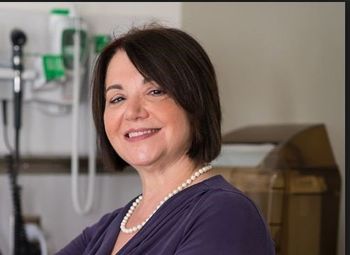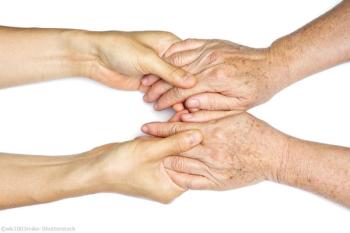
- ONCOLOGY Nurse Edition Vol 25 No 10
- Volume 25
- Issue 10
Our 9/11 Cancer Nursing Connection
Nearly 3,000 people died in the 9/11 tragedy 10 years ago. Yet I cannot help but put this fact into the context of one of the most challenging concerns in the field of public health today: cancer.
Although a decade has passed, I felt a surge of emotional pain run through me upon viewing historic images capturing the events of September 11th, 2001. The grey soot, panic-stricken faces, smoke billowing from the burning towers, bodies being carried, and hatchets hoisted triggered a flood of despair-as if it all had happened yesterday. The loss represented by this tragedy was too big, too overwhelming, to do anything but tremble, sob, and stare at the pictures detailing the horror.
The magnitude of loss was, and still is, incomprehensible. Similar to when President Kennedy was shot, I could remember where I was when it happened and the reactions of those around me. This horror was so unimaginable, no one could forget it. Nearly 3,000 people died in the 9/11 tragedy 10 years ago. Yet I cannot help but put this fact into the context of one of the most challenging concerns in the field of public health today: cancer.
Every day, 1,500 Americans die of cancer-which means that, collectively as oncology nurses, we practice in the epicenter of 9/11s every 2 days throughout the year. We see faces reflecting the terror of anticipated loss, hear cries of disbelief and grief, and view firsthand the families’ struggles when their loved one dies prematurely. Acknowledging these parallels, perhaps there are some lessons to be learned from our experience of 9/11 that we can apply to daily clinical practice.
On 9/11, there was unprecedented openness, an expectation that all of us would grieve together. We somehow felt that the families immediately impacted by the crises of that day were aided by our mourning with them. Similarly, the families of our half a million cancer patients who die every year also need to know that we care about them after their loved ones die. How do you relay that message of compassion? Do you send a card, make a phone call? Equally important, how do you deal with your own grief? After years of practice in our specialty, our losses and sorrows accumulate. Does this grief remain unattended?
While our advances in the war on cancer have been considerable, a distinct reality prevails. Half of our nursing practice focuses on care of the dying. Doing whatever we can to create a more open recognition of this truth serves a dual purpose. Families will have an enhanced sense of being supported in their grief, and we as nurses can face and ameliorate our own collective sorrow. On this landmark anniversary of one of America’s greatest tragedies, take the time to look around and within. Considerable sadness is borne by our patients and their families-and in our own hearts and minds-that requires our urgent attention.
Articles in this issue
over 14 years ago
News of Noteover 14 years ago
Integrative Medicine Conference Calendarover 14 years ago
Suggested Reading for a Geriatric Oncology Nursing Journal Clubover 14 years ago
The Complexity of Hereditary Cancer Syndromesover 14 years ago
Coenzyme Q10over 14 years ago
Elder Spousal Grief in the Context of Cancer Caregivingover 14 years ago
October Is National Breast Cancer Awareness Monthover 14 years ago
Counseling Women at High Risk of Ovarian or Endometrial CancerNewsletter
Stay up to date on recent advances in the multidisciplinary approach to cancer.




































